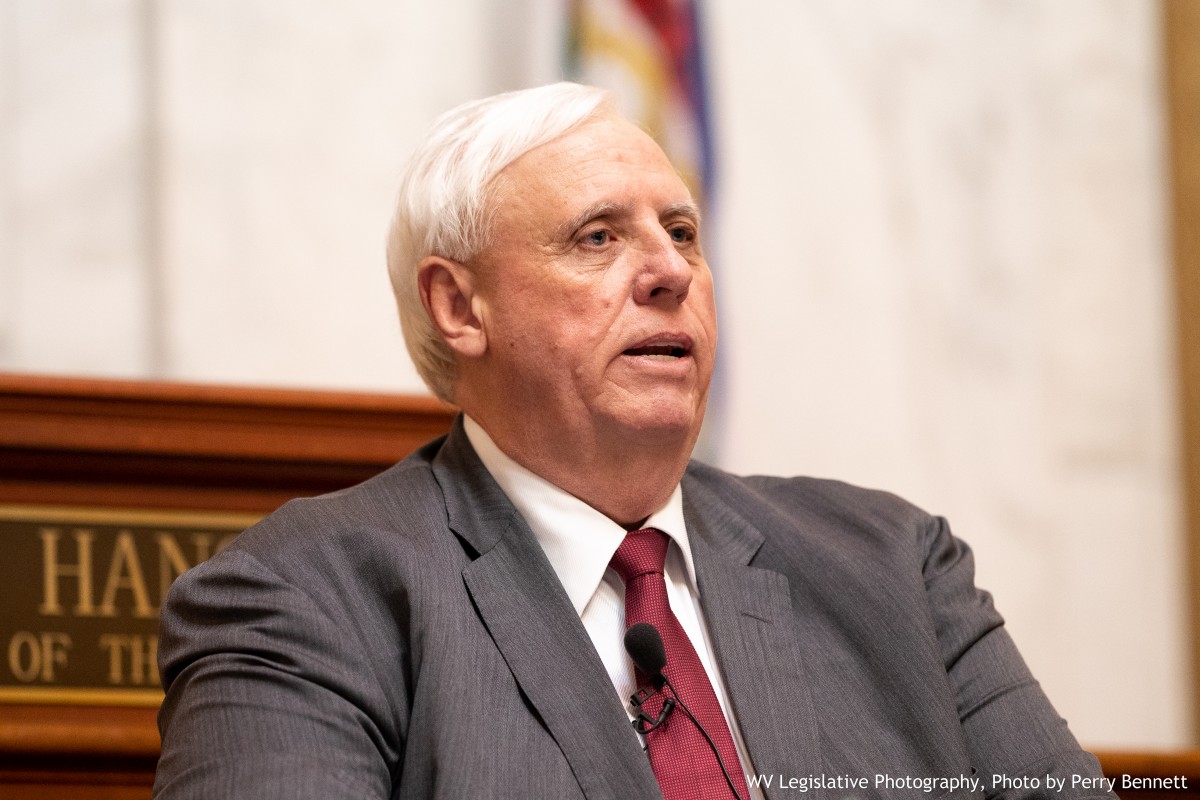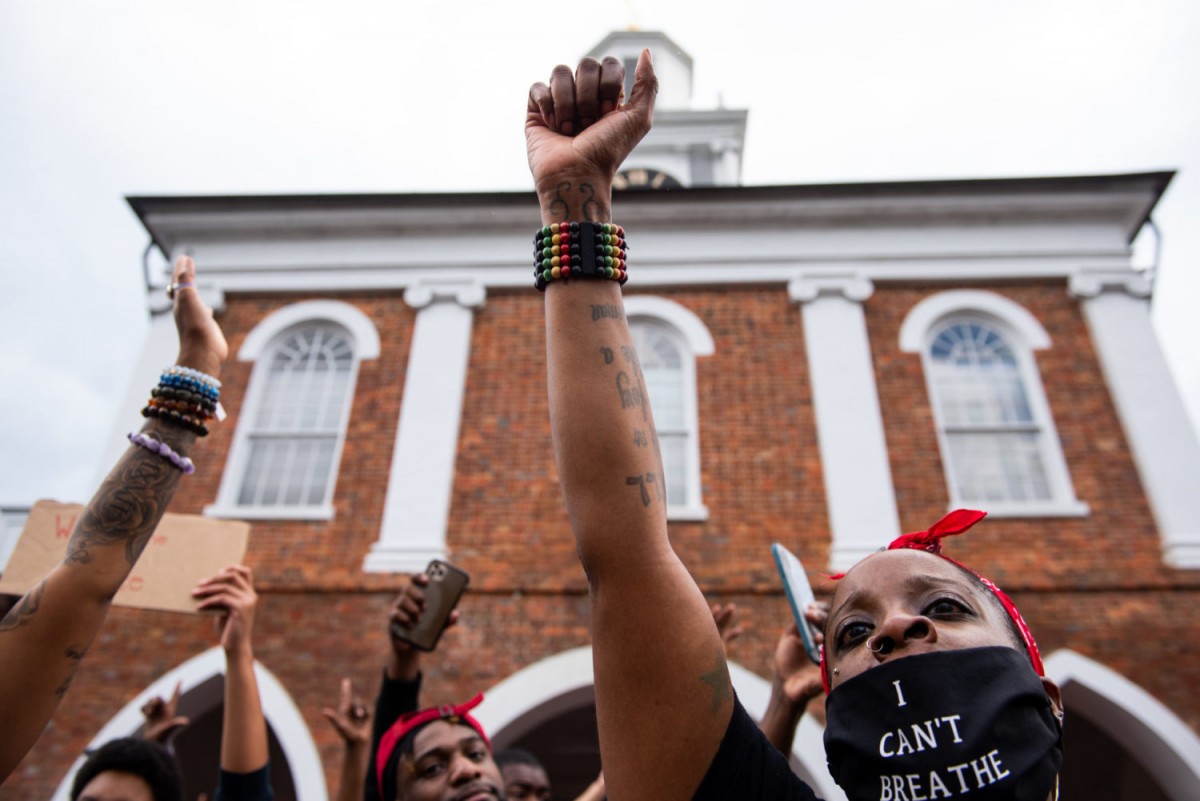This piece was originally published in Scalawag, which amplifies the voices of activists, artists and writers reckoning with the South. You can read the original article here.
In times of crisis, national media usually find a way to blame the South, and the COVID-19 pandemic is no exception. From the map that showed Southerners’ perceived unwillingness to stop driving more than two miles, to daily headlines about the swift and painful re-opening of Southern economies, many self-styled commentators have wagged a finger at working-class Southerners for problems endemic to capitalist power structures.
Harlan can’t survive on $7.25
In April, an NPR reporter based in Washington, D.C., conducted an extremely basic, one-source interview with a business owner in Harlan County, Kentucky. Sky Marietta, a Harvard Ph.D. and an owner of multiple investment properties across Eastern Kentucky, bemoaned how employees abandoned her coffee shop, Moonbow Tipple, to seek the green, lush pastures of state-funded unemployment. Though her workers had not in fact quit–– she admitted in a blog post that she furloughed them–– Sky told the NPR reporter they had voluntarily left her, claiming that the $600 per week in unemployment the workers are receiving from the CARES Act had stripped her livelihood away.
The most obvious critique of this interview was that out of all Marietta’s employees, not one had been contacted for comment. Unfortunately, once the piece had been published, people became even more difficult to reach. The small business world in Eastern Kentucky is tight-knit; whoever opened their mouth would be impossible to keep their anonymity.
Nobody I contacted spoke out either, with one exception. By text, a food service worker formerly in the orbit of Marietta and her business partner husband said, “They’re bent on gentrification under the guise of economic development… they front at being good liberals, but they aren’t.”
This is not to say that the pandemic has been easy for small businesses. It’s not their fault that Paycheck Protection Program loans have been so difficult to access, so restrictive and so often gobbled up by big chains like Ruth’s Chris Steakhouse. Small businesses run a thin margin, and many already struggle to keep up with loan payments.
But over the last 10 years, the slow-roll demise of the Appalachian coal industry and the non-recovery from the Great Recession has left an economic vacuum that towns have tried to fill with sundry “revitalization” efforts. These are often efforts with powerful local business owners at the helm, many of whom benefited from the coal industry financially.
Practically every county in coal country has created a tourism board, and loan programs have popped up to help jump-start local businesses with a focus on retail and food services— think coffee shops, restaurants and gift shops. Seasonal festivals and farmer’s markets play a part in this vision, too. But the bedrock of this plan was the presence of enough people with disposable income, or enough visitors, to keep the capital circulating.
Not only is this impossible during a pandemic— it has created a precariat in a region that’s already high-poverty. Many of these new small businesses pay workers what Sky Marietta told NPR is a generous wage: $7.25 per hour. She claimed that this is plenty for places with a low-cost of living.
The problem is that Harlan isn’t actually all that cheap to live in, and neither are other Appalachian towns and cities. For an area with a high poverty rate, the cost of living can be surprisingly steep. The housing market pickings are slim, and an apartment in downtown Harlan can run as much as $1,300 per month. Gas and grocery prices are also high, and most don’t drink their oft-polluted water from the tap; they buy it from the store.
But of course, this problem isn’t limited to Harlan or to Eastern Kentucky. Lack of accountability for business owners and the state governments that handle unemployment and loans is common throughout the region. Now, workers in Knoxville are calling it what it is.
Knoxville’s service workers demand accountability
Tennessee has changed some rules. Now that businesses are re-opening, officials are targeting workers who fear for their lives too much to return to their jobs. Bosses can report them to the state, and they will no longer be eligible for unemployment, despite the danger.
In response, groups like Service Industry Coalition Knoxville and Knoxville Service Industry United (SIC), have released lists of demands for city, county and state oversight of businesses. Taking inspiration from United Food and Commercial Workers and other food service workers’ unions and associations, SIC wanted to be very clear on one thing: the economic crisis of America’s service workers predates COVID-19. Rent in Knoxville is rising at four times the national average, with the service industry wage stuck at $2.13 per hour.
SIC directly aids service workers through an ever-expanding GoFundMe campaign. In early May, they had received requests totaling over $30,000 from 477 service industry workers across the city. Many workers making requests had to quit their re-opening workplaces due to their high level of health risk. The fund, SIC admits, is not enough. Mutual aid is a beautiful way to care for one another in the midst of the failures of the state; it is not a substitute for the care we deserve from the people we elected to represent us.
SIC’s demands for officials in Tennessee— a right to work state, where membership to a union is not protected by any laws— center on transparency, accountability and protection. For instance, businesses that receive Paycheck Protection Program loans have not been required to disclose how funds will be allocated. So why should bosses get to report on workers? SIC asks that if bosses influence who gets unemployment, workers get the same oversight over bosses seeking bailouts.
Documenting the pandemic, from the ground up
Reporting in a pandemic is not easy. And locally powerful people–– business owners and politicians–– are the most available and press-ready. They have websites and talking points. Many individual workers feel particularly vulnerable right now, and many may not feel comfortable discussing highly personal situations with the media.
However, there are ways around this, such as contacting workers’ organizations like SIC and KSIU. There are plenty of statistics, trends and facts that can carry the story. The real story is one of systemwide failure in which low-paid service work is costumed as the economic savior of the working class, and bosses are granted moral authority for total control of their employee’s lives, along with the benefit of the doubt concerning their own use of public funds.
The real story is that the majority of Americans, in the South and everywhere else, have no safety net, and when a crisis takes them down, the economy crashes with them.
Caitlin Myers is a writer and organizer splitting her time between Knoxville, Tennessee, and Whitesburg, Kentucky. Caitlin writes primarily about economic justice as it relates to labor, health, and the privatization of public services, and she loves to explore the many ways in which communities take power back.



